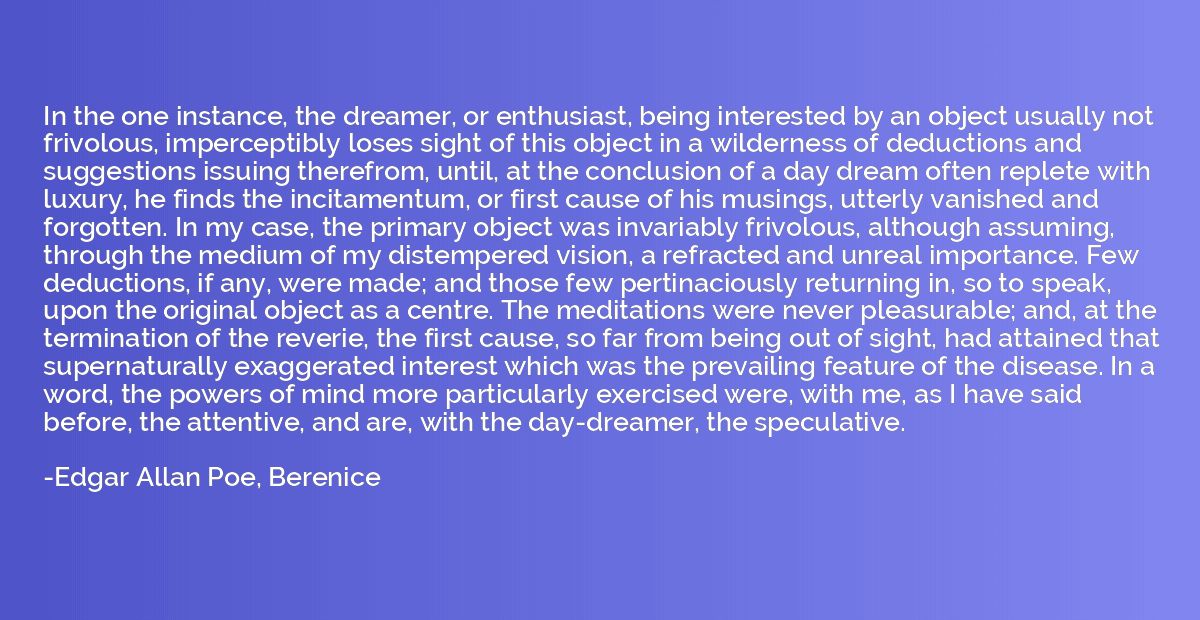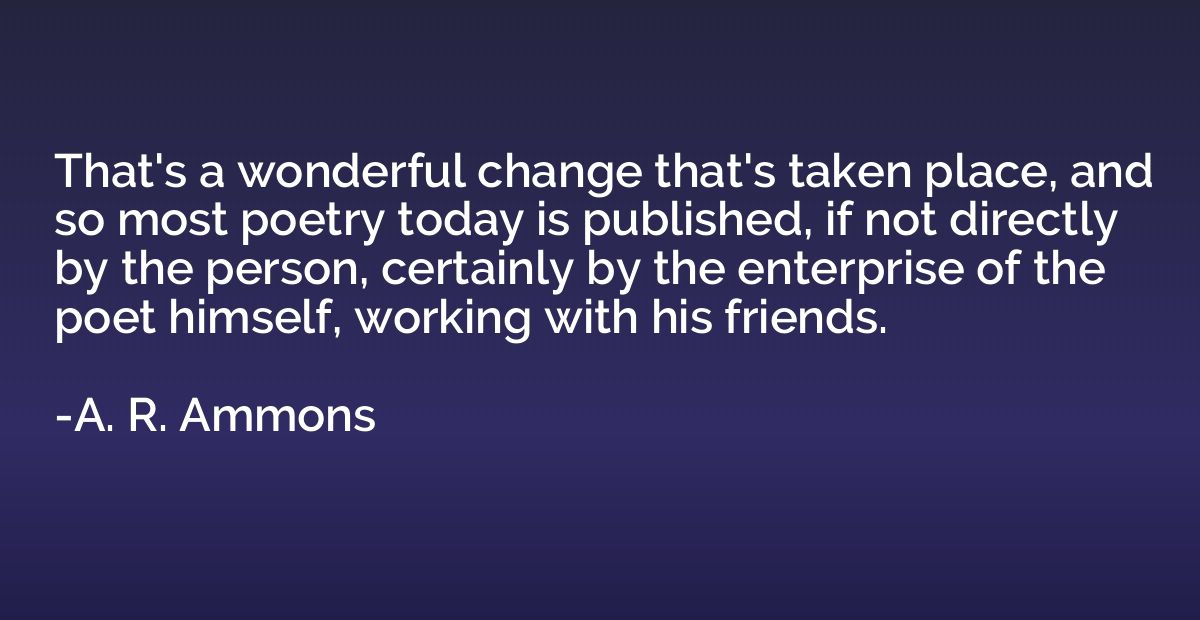Quote by Edgar Allan Poe, Berenice
In the one instance, the dreamer, or enthusiast, being interested by an object usually not frivolous, imperceptibly loses sight of this object in a wilderness of deductions and suggestions issuing therefrom, until, at the conclusion of a day dream often replete with luxury, he finds the incitamentum, or first cause of his musings, utterly vanished and forgotten. In my case, the primary object was invariably frivolous, although assuming, through the medium of my distempered vision, a refracted and unreal importance. Few deductions, if any, were made; and those few pertinaciously returning in, so to speak, upon the original object as a centre. The meditations were never pleasurable; and, at the termination of the reverie, the first cause, so far from being out of sight, had attained that supernaturally exaggerated interest which was the prevailing feature of the disease. In a word, the powers of mind more particularly exercised were, with me, as I have said before, the attentive, and are, with the day-dreamer, the speculative.

Summary
The quote highlights the process of daydreaming or indulging in fantasies. It suggests that when someone becomes engrossed in a seemingly insignificant object or idea, they tend to get consumed by a multitude of thoughts and deductions that take them away from the original focus. The speaker acknowledges that their primary object of interest is often frivolous, but it gains exaggerated importance in their distorted vision. Unlike the daydreamer who speculates, the speaker's musings center around the original object, yet these meditations are not enjoyable. Ultimately, this distinction between attentive and speculative thinking showcases the different mental faculties at play in daydreaming and daydream-like states.














